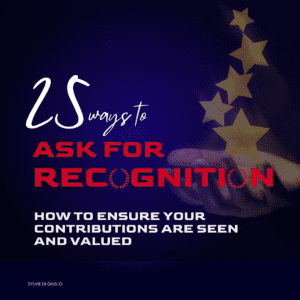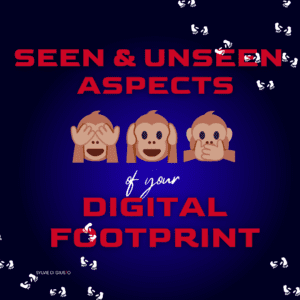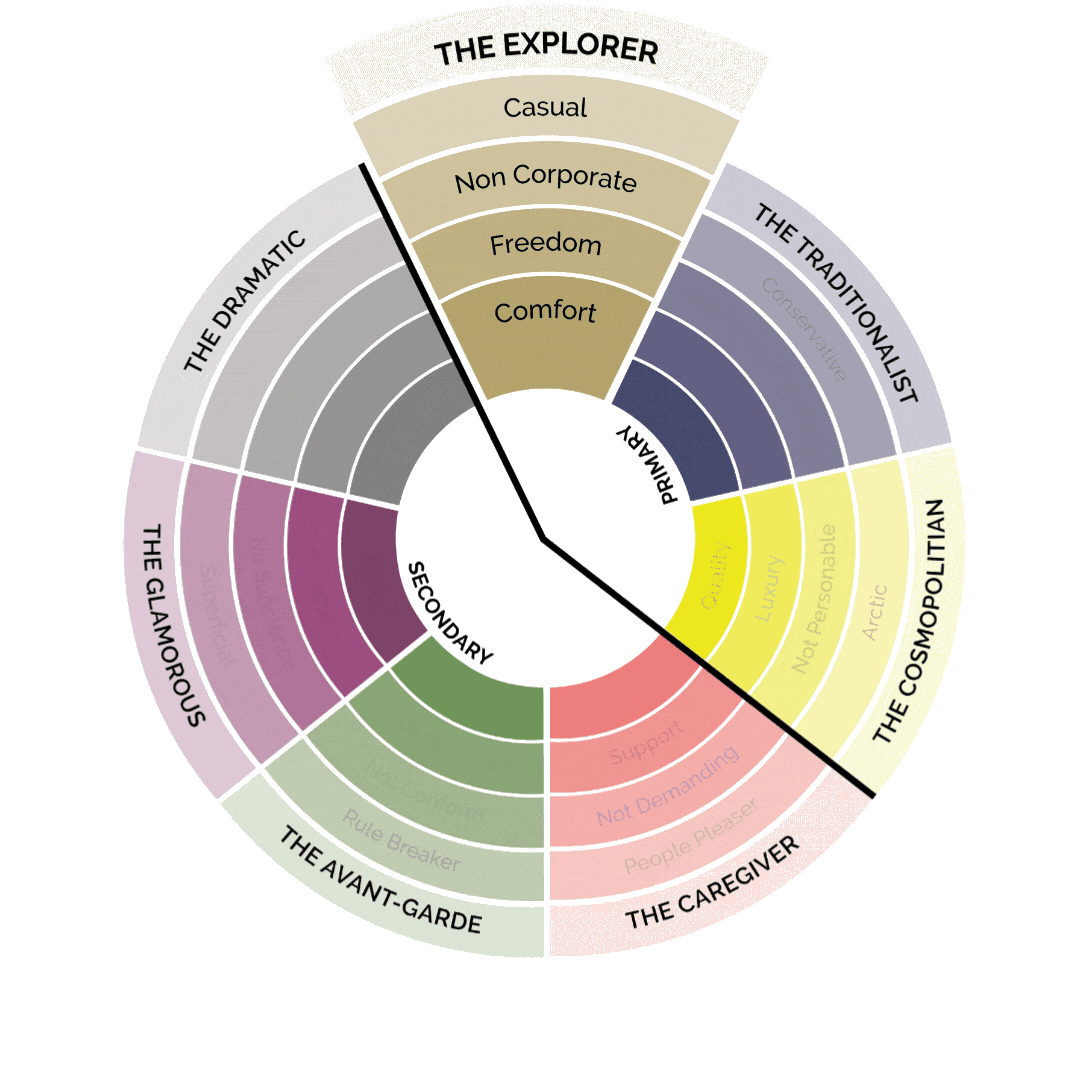How to Control Perception with Emotional Intelligence in the Workplace
Your emotional intelligence is a powerful tool when managing how you are perceived in the workplace. It involves being aware of your emotions and understanding how they affect those around you, as well as managing those emotions effectively. It’s essential to understand how to control perception with emotional intelligence so that you can help shape positive interactions with decision-makers, clients, and colleagues. Let’s take a look at how professionals can use their emotional intelligence in the workplace to control their own perceptions, as well as those of others.
Using Emotional Intelligence To Control Your Own Perception
The first step in controlling your perception is gaining an understanding of yourself. Take time to reflect on your strengths and weaknesses—this will enable you to build self-awareness and confidence. It is also vital, to be honest with yourself about areas where you need improvement. This will give you more clarity on what steps are necessary for personal growth. The challenge with self-perception is that we are heavily influenced by our environment and the reactions of those around us. For example, if a colleague or client makes negative comments, you may start to feel insecure and question your abilities. On the other hand, constantly receiving positive feedback can boost your self-confidence to an unjustified level. Therefore, it is essential to be mindful of your own thoughts and feelings as well as those of others to maintain realistic self-perception.
Questions to ask yourself to find out how you really perceive yourself:
- What are my values?
- How do I rate my abilities in different areas of work?
- Am I confident enough to take on a leadership role?
- What are my strengths and weaknesses when it comes to communication?
- Am I open to constructive criticism?
- What is my attitude toward failure?
- Do I have any destructive habits that need to be changed?
- What unique skills do I possess?
- How can I stay motivated in difficult situations?
- Am I able to manage stress effectively?
The conscious choices you make with your visual, behavioral, communications, digital and social intelligence are all factors that will create the impression you wish to project. It will impact how your
- Confidence: Making positive choices that align with their values and strengths can enhance your confidence and self-esteem.
- Personal growth: Selecting opportunities for professional development and continuous learning can improve your sense of competence and self-worth.
- Work-life balance: Deciding how to manage competing demands and prioritize responsibilities can positively impact your well-being and reduce stress.
- Attitude: Choosing to have a positive attitude and maintain a sense of optimism even in difficult situations can create lasting impressions.
- Career advancement: Demonstrating emotional intelligence when dealing with challenging situations will be beneficial in terms of career progression.
Using Emotional Intelligence To Control How You Perceive Others
Every day you encounter hundreds of people with different personalities, cultural backgrounds, and preferences. Understanding the differences between people can help you better manage your relationships at work. It is essential to recognize that everyone has a unique perspective and remember to remain open-minded when it comes to interacting with other colleagues or clients. You must avoid letting your prejudices cloud your judgment and understand that everyone comes from a different place. Make sure you don’t let your emotions, history, background, and assumptions influence your interactions too much; instead, take a step back and think before responding, acting, or making decisions.
Questions to ask yourself to find out how you really perceive others:
- What do I know about the people I interact with?
- Do I understand their values and beliefs?
- Can I see things from their perspective?
- How can I respect their opinions while disagreeing with them?
- How do I handle situations when someone makes me feel uncomfortable?
- What strategies can I use to respond calmly and effectively to difficult people?
- Can I find common ground between myself and other people?
- Am I aware of cultural differences in communication?
- How can I use my empathy to foster collaboration?
- Do I approach people with an open and positive attitude?
By exercising conscious control over your visual, behavioral, communications, digital and social intelligence choices, you can create the impression that will bring out your best. It will demonstrate that you have
- Cultural sensitivity: Respect for cultural differences can help you build relationships and foster diversity.Empathy: Understanding the feelings of others will help you better connect with them.
- Conflict resolution skills: Respectfully resolving conflicts will be beneficial in maintaining positive relationships.
- Active listening skills: Paying attention to words, body language, and tone of voice will enable you to understand the needs of others better.
- Respect: Showing respect for the differences in opinions and values of others will help strengthen your relationships.
- Leadership potential: Taking the initiative to step up, lead by example, and motivate others can demonstrate your leadership capability.
Using Emotional Intelligence To Control Others’ Perceptions Of You
Everything you wear, say and do helps shape how others perceive you. Others make assumptions about you just the way you do about them. Therefore, it is crucial to be aware of how your words and actions can impact the perceptions of those around you. This involves understanding what messages you are sending and adjusting them if needed. Why would or should you adjust, you ask? Isn’t it all about being authentic and true to yourself? Yes, authenticity is essential, but if you are too rigid about how you want others to view you, it can hinder developing meaningful relationships and professional progress.
Questions to ask yourself to find out how others perceive you:
- Do I come across as confident or insecure?
- Do I appear to be open-minded and respectful?
- What do I do to build trust with the people around me?
- Do I make sure to listen before speaking?
- Am I being too controlling or opinionated?
- How do my words and behavior affect other people’s feelings?
- Am I setting a positive example for others to follow?
- What can I do to improve the way people think of me?
- Are there areas where I need to be more flexible?
- What image am I projecting to the outside world?
By intentionally controlling your visual presence, actions, conversations, and digital and social media strategies, you can craft a compelling impression that presents the best version of yourself and that demonstrates to others:
- Professionalism: Making choices that reflect a high level of professionalism, such as adhering to dress codes, using appropriate communication tones, and maintaining ethical standards, can enhance their reputation and image.
- Competence: Showcasing their skills and expertise through their work, feedback, and professional development can demonstrate their competence and value to others.
- Reliability: Making informed and well-considered decisions, delivering results on time, and consistently meeting commitments can foster trust and enhance their reputation as reliable professionals.
- Authenticity: Demonstrating their brand and unique skillset can help establish their authenticity and differentiate them from others in the workplace.
- Compassion: Showing compassion for their colleagues, customers, and the community can demonstrate caring and understanding.
It is essential for professionals to understand how emotional intelligence plays a role in controlling perception both internally (i.e., our own perception) and externally (i.e., how we perceive others or are perceived by others). By taking steps such as
- reflecting on our strengths and weaknesses honestly,
- practicing active listening techniques,
- empathizing with others’ perspectives,
- avoiding making assumptions before gathering facts,
- maintaining an attitude of curiosity over criticism,
- establishing clear boundaries upfront,
you show that we have strong emotional intelligence skills, which benefit us both professionally and personally. When used correctly, emotional intelligence can help improve relationships within teams while reducing misunderstandings between individuals. This ultimately leads you to greater success. Ultimately, mastering emotional intelligence allows you to tap into its power to positively influence your interactions with decision-makers, clients, colleagues, etc. Maximizing your own emotional intelligence will give you greater control over your own perception (and thus career advancement) as well as those around you.
Perception and Emotional Intelligence in a Nutshell


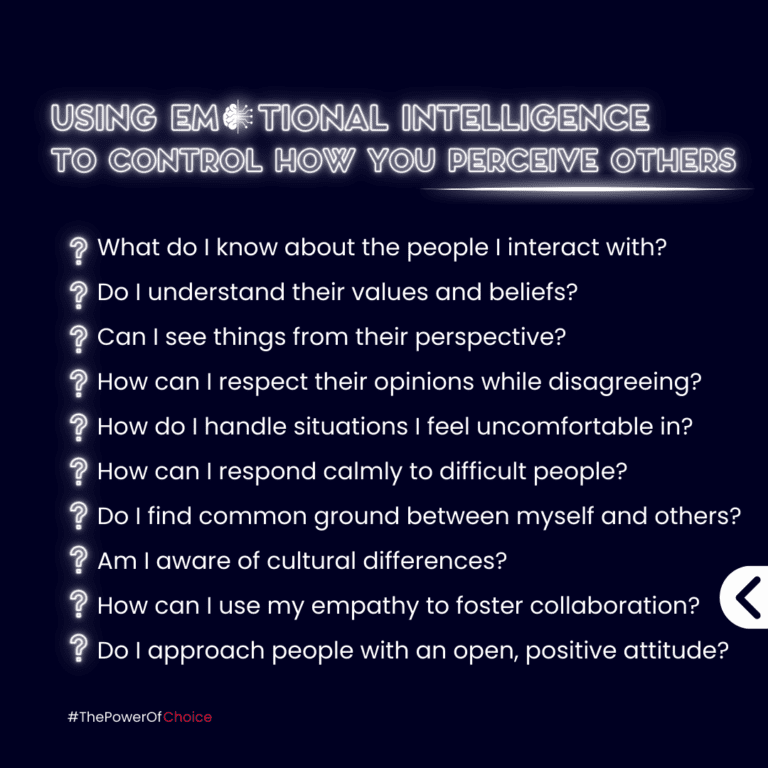
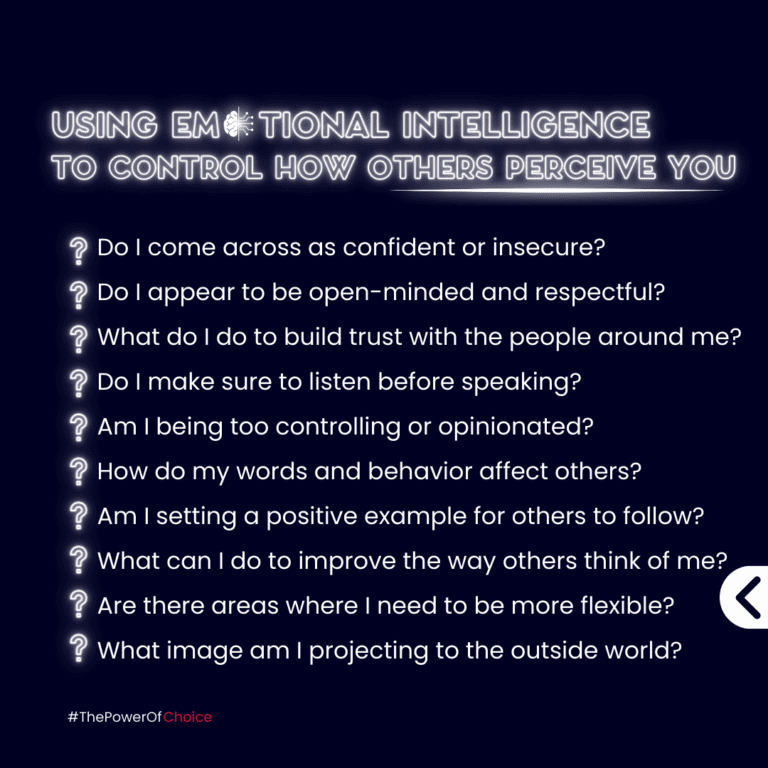

PS: Interested in more content like this? Make sure to follow me on Instagram. It’s where I visualize and publish my thoughts daily. I hope to see you there.
